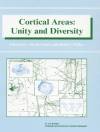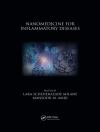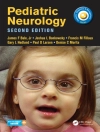This chapter provides a brief overview of the book highlighting the modest progress from child welfare to child well-being re?ected in these chapters, and the parallel movement in Kahn’s career and research, as his scholarship developed over the years. It then moves to explore the relationship between two overarching themes, child and family policy stressing a universal approach to children and social prot- tion stressing a more targeted approach to disadvantaged and vulnerable individuals including children and the complementarity of these strategies. Introduction To a large extent Alfred J. Kahn was at the forefront of the developments in the ?eld of child welfare services (protective services, foster care, adoption, and family preservationandsupport). Overtimehisscholarshipmovedtoafocusonthebroader policy domain of child and family policy and the outcomes for child wellbeing. His work, as is true for this volume, progressed from a focus on poor, disadvantaged and vulnerable children to a focus on all children. He was convinced that children, by de?nition, are a vulnerable population group and that targeting all children, empl- ing a universal policy as a strategy would do more for poor children than a narrowly focused policy targeted on poor children alone, As we ?rst argued more than three decades ago (Not for the Poor Alone; “Universalism and Income Testing in Family Policy”), one could target the most disadvantaged within a universal framework, and this would lead to more successful results than targeting only the poor.
Зміст
Opening Chapters.- From “Child Saving” to “Child Development”?.- From Child Welfare to Children Well-Being: The Child Indicators Perspective.- Child Welfare.- An Historical Perspective on Child Welfare.- Testing Practice Wisdom in Child Welfare.- Understanding Child Maltreatment Systems: A Foundation for Child Welfare Policy.- Fact-Based Child Advocacy: The Convergence of Analysis, Practice, and Politics in New York City.- Using Early Childhood Wellbeing Indicators to Influence Local Policy and Services.- Social Policy and the Transition to Adulthood for Foster Youth in the US.- Theoretical Perspectives.- The Ecological Perspective on the Human Rights of Children.- Social Problem Construction and Its Impact on Program and Policy Responses.- The Development of International Comparative Child and Family Policies.- Using Child Indicators to Influence Policy: A Comparative Case Study.- In Children’s Voices.- Economic Support.- Assuring Child Support: A Re-assessment in Honor of Alfred Kahn.- Child Poverty and Antipoverty Policies in the United States: Lessons from Research and Cross-National Policies.- Income Support for Families and the Living Standards of Children.- An International Perspective on Child Benefit Packages.- Canadian Policies for Families with Very Young Children in International Perspective.- Child Poverty in Upper-Income Countries: Lessons from the Luxembourg Income Study.- Issues in Child Well-Being.- Early Childhood Education and Care.- Childcare Policies in France: The Influence of Organizational Changes in the Workplace.- Regional Case Studies—Child Well Being in Europe.- Conclusion.- Child, Family, and State: The Relationship Between Family Policy and Social Protection Policy.
Про автора
BRIEF BACKGROUND SUMMARY: SHEILA B. KAMERMAN
Dr. Sheila B. Kamerman is the Compton Foundation Centennial Professor for the Prevention of Child and Youth Problems at the Columbia University School of Social Work, and director of the University-wide and interdisciplinary Columbia Institute on Child and Youth Policies, . She also co-directs, with Alfred J. Kahn, the ICFP web-site based Clearinghouse on International Developments in Child and Family Policies (www.childpolicyintl.org). Between 2001 and 2002, Dr. Kamerman was the Interim Dean of the School. Dr. Kamerman’s teaching areas are social policy, child and family policy, social services, comparative welfare state policies, and international social welfare. Her current and recent research activities include:, a study of early childhood care and education policies and programs in the OECD countries, a study of parental leave policies in these countries, and social protection policies in developing countries. Dr. Kamerman has consulted widely for U.S. and international organizations, including UNESCO, OECD, UNICEF, UNDP, and ISSA. She is the author, co-author, or co-editor of more than thirty books or monographs and almost two hundred articles and chapters. Her most recent books, the first co-edited with Alfred J. Kahn, are:
Beyond Child Poverty: The Social Exclusion of Children. (New York: Columbia University Institute for Child and Family Policy. 2003)
Early Childhood Education and Care: International Perspectives. (New York: Columbia University Institute for Child and Family Policy. 2002)
Several recent comparative international articles and book chapters include:
‘A Global History of ECEC Policies and Programs’ UNESCO, 2006
(With M. Neuman, J. Waldfogel, and J Brooks-Gunn) Social Policies, Family Types and Child Outcomes in Selected OECD Countries. (OECD, 2003).
Among her honorsis an honorary degree from York University, England in an unusual joint recognition of the work of herself and her colleague Alfred J. Kahn in cross-national social policy research. Further information is available in: Who’s Who in America (since 1984) and Who’s Who in the World (since 1995).
BRIEF BACKGROUND SUMMARY: ASHER BEN-ARIEH
Asher Ben-Arieh, Ph.D., is a senior-lecturer at the Paul Baerwald School of Social Work at the Hebrew University in Jerusalem and since 2007 he is the Head of the Joseph J. Schwartz M.A. Programs in early childhood and non-profit management.
As of 1990 Dr. Ben-Arieh served as the project director and editor of the annual ‘State of the Child in Israel – a Statistical Abstract.’. Dr. Ben-Arieh initiated and coordinated the Multi-national Project, ‘Measuring and Monitoring Children’s Well-Being.’ He was among the founding members of the International Society for Children Indicators (ISCI) and was recently elected to be its first co-chair.
Dr. Ben-Arieh is one of the leading international experts on social indicators, particularly as they relate to child well-being, he has published extensively on the politics of social policy and child well being in Israel, and on child well being indicators and its measurement. He serves on the management committee of the EU child welfare research network and the UN Secretary General advisory network on social indicators.
Dr. Ben-Arieh is the founding editor in chief of the Child Indicators Research (CIR) journal and the Children well being: Research and Indicators book series. Both are a Springer publishing house publications.
Shelley Phipps is a Professor in the Department of Economics at Dalhousie University, holder of the Maxwell Chair in Economics since 2000 and a Fellow of the Canadian Institute for Advanced Research since September 2006.
Phipps’ research has focused on Canadian policyissues. A first research interest, beginning with her Ph D dissertation, has been the Canadian EI program. More recently, she has completed studies of ‘EI and work-life balance’ and of the EI maternity and parental benefits program. A second focus for research has been social policy more generally, particularly international comparisons of policies for families with children. A third research interest is in decision-making within families and on implications of (traditionally) women’s care-giving responsibilities for their health and labour market outcomes.
Finally, Phipps continues to study determinants of the health and well-being of Canadian children.
Phipps also has a long history of writing less ‘technical’ and more ‘policy-oriented’ documents, through consulting work for government (for example, studies for the EI evaluation branch, a series of empirical studies of child well-being conducted for the Applied Research Branch of (then) HRDC, work with Justice Canada to help design child support awards). She has carried out research projects for institutions such as Canadian Policy Research Networks, the Canadian Population Health Initiative, and the Institute for Research on Public Policy. She recently served as the ‘Expert Advisor’ for the HRSDC evaluation of EI Compassionate Care benefits and is a member of the Statistics Canada Advisory Committee on Labour and Income Statistics.












